




Caird Hall, Dundee Thu 5 Oct 2023 7.30pm

Mussorgsky’s musical depiction of his friend Viktor Hartmann’s picture exhibition is an electrifying showpiece: glowing skulls, dancing chickens, medieval minstrels and the Great Gate of Kiev – they’re all here, painted in sound and as large as life when conducted by RSNO Music Director Thomas Søndergård. Add Lera Auerbach’s fiery Greek myth, and the fabulous Lise de la Salle in Grieg’s ever-popular Piano Concerto and you have the perfect recipe for an ear-tingling concert with Scotland’s National Orchestra.
LERA AUERBACH Icarus [12’]
GRIEG Piano Concerto in A Minor Op16 [30’]
INTERVAL
MUSSORGSKY orch. Ravel Pictures at an Exhibition [29’]
Thomas Søndergård Conductor
Lise de la Salle Piano
Royal Scottish National Orchestra
Kindly supported by the Northwood Charitable Trust, R J Larg Family Trust, Leng Charitable Trust, Tay Charitable Trust and Leisure & Culture Dundee Major Music Award.

Supported by RSNO Benefactors & RSNO Conductors’ Circle
If viewing these notes at the concert, please do so considerately and not during performances. Please silence all mobile telephones and alerts, and refrain from taking photographs, without flash, until the end of each piece.
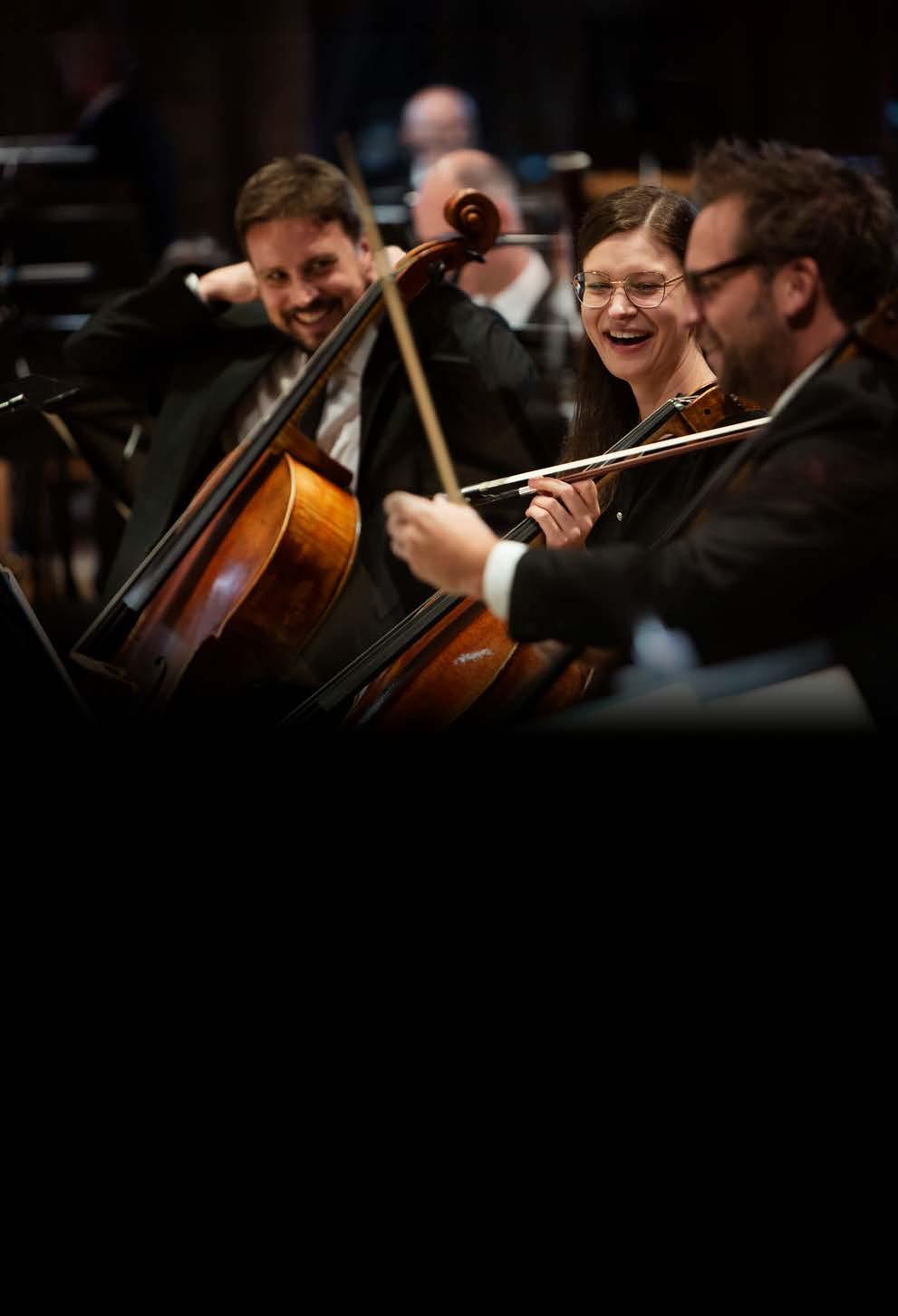

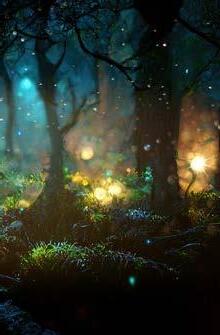

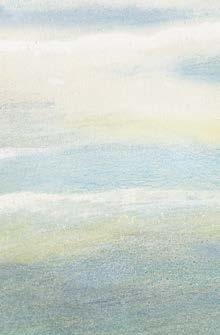


It is my pleasure to welcome you back to the Caird Hall for the first concert of the RSNO’s 2023:24 Season.
We have continued to keep busy over the summer, performing in the Edinburgh International Festival’s opening concert and recording for both classical and film in Scotland’s Studio. The Orchestra is proud to feature on the soundtrack for the recently released The Equalizer 3, which topped UK, Ireland and US box offices in its first weekend.
This evening we are grateful to be joined by pianist Lise de la Salle for Grieg’s Piano Concerto. I am always excited to invite international talent of Lise’s calibre to Scotland, as well as being able to share our collective music-making with European audiences. Later this month, the Orchestra travels to Salzburg for a three-night residency at the wonderful Grosses Festspielhaus, performing the repertoire you hear tonight and led by Thomas Søndergård as he begins his sixth Season as our Music Director. Lise joined us last in spring 2022 for our first overseas performances since the pandemic, and it is a pleasure to have her with us once more.
Looking forward to the Season to come, I’m thrilled to welcome two new permanent members to the Orchestra – Veronica Marziano as First Violin and Beth Woodford to the Viola Section. I wish them both long and happy tenures with the RSNO, and I hope that you will make them feel at home here in the Caird Hall.
I hope you enjoy this evening’s concert and I look forward to sharing the rest of the Season with you.
Alistair Mackie CHIEF EXECUTIVE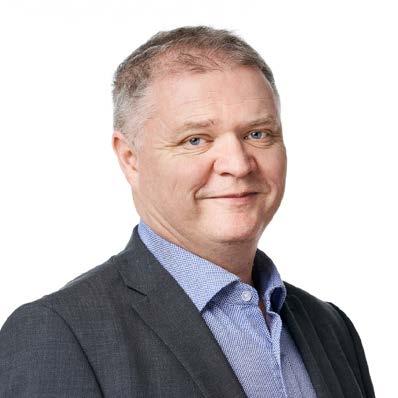



































































Verbier, Switzerland, 18 July 2011
DURATION 12 minutes
I have always been fascinated by the myth of Icarus. As a child, I lived in Greece. A book of myths was my favourite. Later, the world of jealous gods and god-like humans was more real to me than the world outside my windows, full of blood-red flags (the red of the Soviet flag symbolised the blood of the heroes of the Revolution), and the Soviet-trinity portraits of Lenin–Marx–Engels with the occasional bushy eyebrows of Brezhnev looking at me from the walls of the buildings. In some ways the two worlds blurred. The world outside made much more sense through the perspective of the ancient Greek myths, where it was quite common for a power-protective god to devour all his children.
Icarus was one of my heroes (or antiheroes, depending on the interpretation) – the winged boy who dared to fly too close to the sun. The wings were made by his father, Daedalus, a skilled craftsman, who earlier in his life designed the famous labyrinth in Crete that held the Minotaur. Daedalus was held prisoner in Crete and the wings were his only way to escape.
Daedalus warned Icarus not to fly too close to the sun or too close to the ocean, but what teenager listens to his father? Exhilarated by freedom, by his own youth, by the feeling of flight, Icarus soared higher and higher until the wax on his wings melted and he fell into the ocean.
The title Icarus was given to this work after it was written. All my music is abstract, but by giving evocative titles I invite the listener to feel free to imagine, to access their own memories, associations. ‘Icarus’ is what came to my mind, listening to this work at that time. Each time I
hear the piece, it is different. What is important to me is that it connects to you, the listener, in the most individual and direct way, that this music disturbs you, moves you, soars with you, stays with you. You don’t need to understand how or why – just allow the music to take you wherever it takes you. These programme notes are a door to your imagination. The music is your guide. But it is up to you to take the step and cross the threshold.
© Lera AuerbachLera Auerbach was born in Chelyabinsk in west-central Russia. Something of a prodigy, at the age of 12 she wrote her first opera, which was performed in numerous cities across the Soviet Union. As the winner of several piano competitions, she was invited on a concert tour to the USA in 1991. She decided to stay there and was one of the last artists to leave the former Soviet Union.
She graduated from New York’s Juilliard School in piano (under Joseph Kalichstein) and composition (under Milton Babbitt and Robert Beaser). She also studied Comparative Literature at Columbia University and gained a piano diploma at the Hanover Conservatoire. In 2002 she made her Carnegie Hall debut, performing her Suite for Violin, Piano and String Orchestra with Gidon Kremer and Kremerata Baltica.
Since then Auerbach has composed more than 100 works across every genre. She gives concerts as a pianist and has created numerous literary works, including three Russian poetry volumes and a book of modern aphorisms in English.
FIRST PERFORMANCE
Copenhagen, 3 April 1869
DURATION 30 minutes
Edvard Grieg (1843-1907) in A Minor Op16
Other composers too were enthusiastic, although Debussy was later a notable exception.
Franz Liszt was so taken with Grieg’s music that he invited him to his house in Weimar, with typical Lisztian enthusiasm. Grieg brought the Piano Concerto on his second visit, but when he refused to play, Liszt sat down and played it through – orchestra part included –with great panache, according to Grieg. The young composer, not long out of the Leipzig Conservatory, described the experience in a letter home. ‘Keep on I tell you,’ he recalled Liszt telling him, on his second play-through of a work that Grieg was to revise some seven times over his lifetime. ‘You have what is needed, and don’t let them frighten you.’
Edvard Grieg’s Piano Concerto in A Minor is one of the best-known and best-loved of all piano concertos, and has been since it – his only largescale work – was premiered to instant success in 1869, with Edmund Neupert as the soloist.
Tchaikovsky said of Grieg’s music:
It is not surprising that everyone should delight in Grieg. There prevails a fascinating melancholy which seems to reflect in itself all the beauty of Norwegian scenery, now grandiose and sublime in its vast expanse, now grey and dull, but always full of charm … that rarest of qualities, a perfect simplicity, far removed from affectation and pretence.
The solo part, and its interplay with the orchestra, contained a brilliance that spoke to Liszt, yet Grieg had found the inspiration for the Concerto partly in Robert Schumann’s equally famous Piano Concerto, also in A Minor, which he had heard in what he described as a revelatory performance by Clara Schumann in Leipzig in 1858. And yet the Concerto was distinctively Grieg, his unique musical language marking an important point in the Norwegian drive towards a ‘national’ music.
Tchaikovsky had been right to spot this sense of Norwegian-ness, for Grieg had become deeply interested in Norwegian folk song. Fascinated by their measure, fascinated by the notion of a true Norwegian national music in a country which had been so closely a part of both Denmark and Sweden over the preceding centuries, he mined the structures and tonalities of Norway’s folk music to inspire his own original interpretation, marked with his own harmonic ideas.
The idea of Norwegian independence had held sway during much of the 19th century, although the country would not achieve that goal until
1905. Grieg’s music was seen as fuel to the fire in a Europe that was taken by the idea of nationalism, and the expression of national character, in music.
The Norwegian-ness in Grieg’s Concerto comes in the distinctive falling seconds and thirds of the opening bars, the fiddle-like tunes of the Adagio and the Halling folk dance of the third. Indeed, while Grieg subsequently started a B Minor piano concerto, it was never finished, the composer instead concentrating on folk-influenced song and small pieces of orchestral and solo music which took the essence of the folk-song canon, but never the melodies themselves, and proved influential to the next generation of both Scandinavian and European composers.
© Sarah Urwin JonesGrieg Piano Concerto
Soloist Håvard Gimse
Plus Overture: In Autumn and Symphonic Dances Op64
Conductor Bjarte Engeset
More information rsno.org.uk/recordings
5 Jan Scotland’s oldest professional football team, Kilmarnock FC, was founded
3 Mar Henry Wood, founder of the Proms, was born
4 Mar UIysses S Grant was sworn in as 18th President of the United States
18 Mar Dmitri Mendeleev presented his periodic table of chemical elements to the Russian Chemical Society
10 May The First Transcontinental Railroad in North America was completed at Promontory, Utah
22 May The first Sainsbury’s store opened in Drury Lane, London
16 Oct Emily Davies and Barbara Bodichon founded England’s first residential universitylevel college for women, at Hitchin
17 Nov The Suez Canal, linking the Mediterranean Sea and the Red Sea, was inaugurated
23 Nov The clipper Cutty Sark was launched at Dumbarton
8 Dec The First Vatican Council, at which papal infallibility was defined, opened in Rome
31 Dec French artist Henri Matisse was born
(Deutsches Symphonie-Orchester Berlin, Rundfunk-Sinfonieorchester Berlin, Münchner Philharmoniker, Staatskapelle Dresden, WDR Sinfonieorchester Köln, hr-Sinfonieorchester Frankfurt), her native France (Orchestre de Paris, Orchestre National de France and Lyon), Italy (Orchestra dell’Accademia Nazionale di Santa Cecilia, Filarmonica della Scala, Orchestra Sinfonica Nazionale della RAI) and with the Rotterdam and St Petersburg Philharmonic orchestras; and in Asia (NHK Symphony and Singapore Symphony orchestras, Tokyo Metropolitan Symphony Orchestra).
Over the past 15 years, Lise de la Salle has established herself as one of today’s most exciting pianists and a musician of sensibility and maturity.
Later this month she joins the RSNO and Thomas Søndergård for the Orchestra’s three-night residency at Salzburg’s Grosses Festspielhaus. Other 2023/24 season highlights include major performances with the Orchestre National de France and Stéphane Denève on tour, the Royal Stockholm Philharmonic Orchestra and the National Symphony Orchestra in Washington, DC under Simone Young, and Milan’s Orchestra i Pomeriggi Musicali and James Feddeck, as well as appearances with the Oxford Philharmonic Orchestra, Macao Orchestra and Beethoven Orchester Bonn.
She has played with many leading orchestras across the globe: from the USA (Chicago, Boston, Detroit, Atlanta Symphony orchestras, Los Angeles Philharmonic, Philadelphia Orchestra) to the UK (BBC Symphony, London Symphony, Philharmonia, Royal Philharmonic orchestras); across Europe in Germany
She performs in the world’s most esteemed concert halls, including the Vienna Musikverein, Concertgebouw Amsterdam, Herkulessaal Munich, Berlin Philharmonie, Tonhalle Zürich, Lucerne KKL, Bozar Brussels, Wigmore and Royal Festival halls London, Théâtre des ChampsElysées Paris and Hollywood Bowl Los Angeles, and festivals such as Klavier Festival Ruhr, Kissinger Sommer, Verbier, La Roque-d’Anthéron, Bucharest’s Enescu Festival, San Francisco Performances, Chicago Symphony recital series, Aspen and Ravinia.
Her critically acclaimed Naïve CDs include an all-Chopin disc featuring a live recording of the Piano Concerto No2 with Fabio Luisi and the Staatskapelle Dresden. Her Liszt album received Diapason magazine’s Diapason d’Or and Gramophone’s Editor’s Choice. Her most recent album, When do We Dance?, was released in 2021.
Lise de la Salle started playing the piano at the age of four and gave her first concert five years later in a live broadcast on Radio France. In 2004 she won the Young Concert Artists International Auditions in New York. She studied at the Paris Conservatoire. She has worked closely with Pascal Nemirovski and was a long-term advisee of Geneviève Joy-Dutilleux.

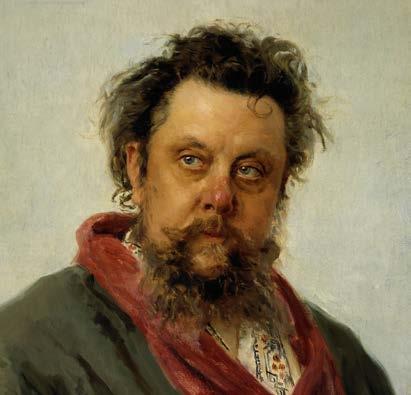
‘He likes what is coarse, unpolished and ugly.’ Tchaikovsky’s withering appraisal of his compatriot and colleague Modest Mussorgsky is hardly flattering. And yet there’s a kernel of truth in it too. For in his music, Mussorgsky did indeed favour the rawness of direct expression in a way that contrasts starkly with the luscious Romanticism of Tchaikovsky. And it’s shown nowhere more clearly than in his powerful suite Pictures at an Exhibition.
FIRST PERFORMANCE
Paris, 19 October 1922
DURATION 29 minutes
Promenade
Gnomus
Promenade
The Old Castle
Promenade
Tuileries
Bydlo
Promenade
Ballet of the Chicks in their Shells
Samuel Goldberg and Schmuÿle
Limoges: The Market
Catacombs – Con mortuis in lingua mortua
The Hut on Fowl’s Legs (Baba Yaga)
The Great Gate of Kiev
Maybe it had something to do with his background. Despite the young Modest showing promise as a pianist and composer, his parents decided on a military career for the lad. He resigned from the army at the first opportunity, however, and fled back to music, taking composition lessons from composer Mily Balakirev and struggling to support his musical activities by working as a low-grade civil servant (despite being twice fired from the post). He lived in a commune, and infused his music with the heady, radical ideas he came into contact with there – that art should reflect the grittiness of real life and search for the deepest truths.
Mussorgsky found a soulmate in the visual artist Viktor Hartmann, who shared his ideals in the worlds of painting, design and architecture. The two men were introduced in 1862 by the art critic and historian Vladimir Stasov, and they quickly became close friends, drawn together by a freewheeling, progressive creative spirit. So when Hartmann suddenly died in 1873 following a heart attack, at the age of just 39, the composer was devastated.
Stasov set about organising a memorial exhibition of Hartmann’s drawings, paintings and designs, and when Mussorgsky visited the exhibition in spring 1874 he was deeply moved – and immediately inspired, rushing to work on a set of piano pieces based on Hartmann’s images, which he completed on 22 June. ‘Sounds and ideas
fill the air,’ he wrote to Stasov, ‘and I can barely scribble them down fast enough.’ His intention, he continued, was to depict himself as though he were a visitor ‘roving through the exhibition, now leisurely, now briskly, in order to come closer to a picture that had attracted his attention, and at times sadly thinking of his departed friend’.
Mussorgsky’s Pictures at an Exhibition is now one of the best-loved memorial pieces in the repertoire – but it was entirely unknown in the composer’s lifetime. It was almost certainly never played while Mussorgsky was alive, and the piano score was only discovered among Mussorgsky’s belongings after his death by his musical executor, Nikolai Rimsky-Korsakov, who set about editing the manuscript and arranging for it to be published in 1886. Even then, however, it generated little interest from pianists.
But almost immediately, the work was seized upon by composers keen to re-cast Mussorgsky’s piano writing across an orchestral canvas. The first orchestration came as early as 1891, but Maurice Ravel’s masterful reimagining came much later, in 1922. It was a commission from conductor Serge Koussevitzky for his Boston Symphony Orchestra (ironically, Koussevitzky wasn’t even aware of Pictures until Ravel drew his attention to it). It quickly became a muchloved orchestral showpiece – partly because of Ravel’s grand, glittering orchestration, and partly because Koussevitzky had cannily secured exclusive performance rights for five years, during which time he turned it into a staple of the Boston repertoire, in concert and in newfangled recordings, heard all over the world. However, despite his sumptuous reimagining of Mussorgsky’s rough-edged piano pieces, Ravel remains remarkably faithful to the original – only in the final Great Gate of Kiev does he allow himself the indulgence of adding a few notes of his own.
Mussorgsky’s masterstroke is to introduce a majestic Promenade representing himself strolling between the artworks. Ravel gives this opening theme to glowing choirs of brass, as if to summon us to attention. Hartmann’s first picture is Gnomus, a gnome-shaped nutcracker he designed as a children’s Christmas present, and which Mussorgsky depicts in bad-tempered outbursts alternating with passages of ominous calm.
Following another, more reflective, Promenade for solo horn and woodwind, Mussorgsky moves on to The Old Castle, based on a Hartmann watercolour of a troubadour serenading his loved one by moonlight at an ancient edifice he visited in Italy. Ravel gives the main melody to a doleful solo saxophone.
Another Promenade seems to break off in mid-flow, leading straight into the miniature scherzo Tuileries, depicting children playing and squabbling in the famous gardens of Paris, the city where Hartmann had lived for a time. With barely a break, Mussorgsky moves on to Bydlo, a depiction of a lumbering Polish ox cart that begins quietly in the distance with a melody Ravel assigns to a solo tuba, before building to a mighty orchestral climax as the cart draws nearer.
A quiet, rather hesitant Promenade finds Mussorgsky somewhat in shock after the power of Bydlo, but he soon finds solace in the chirruping woodwind of the delicate Ballet of the Chicks in their Shells, based on Hartmann’s costume designs for the 1876 St Petersburg ballet Trilby
Mussorgsky owned two drawings by Hartmann, one entitled A Rich Jew Wearing a Fur Hat and the other Poor Jew: Sandomierz, and he seems to have imagined them together in Samuel Goldberg and Schmuÿle, which describes an argument between the two men, the first wealthy and pompous (with an expansive melody in low strings), and the
second poor and querulous (a stuttering figure on muted trumpet).
Mussorgsky moves on to the bustle and gossip of Limoges: The Market, before plunging us into the sepulchral darkness of the Parisian Catacombs, ancient underground bone-filled tombs that Hartmann had visited while living in the French capital. Ravel preserves the original’s raw intensity in a sparse orchestration for brass alone, alternating loud and soft as the sounds echo around the endless vaults. The rest of the orchestra joins for Con mortuis in lingua mortua (With the dead in a dead language), which transfigures the Promenade theme into an eerie invocation.
The terrifying child-eating witch of Russian folklore, Baba Yaga, breaks the calm with the fierce, unpredictable music of The Hut on Fowl’s Legs, based on Hartmann’s elaborate design for a clock inspired by her chicken-footed home, before even she is halted in her tracks by the grand vision of The Great Gate of Kiev. Hartmann’s picture is a design for an entrance gate to the Ukrainian capital that he submitted in an architectural competition in 1866. As well as two brief, quiet chorales based on Russian orthodox chant, Mussorgsky brings back his Promenade theme as part of the movement’s grand culmination, and Ravel ensures a sense of pomp and ceremony with pealing bells and thundering drums.
© David Kettle11 Jan The first-ever insulin injection was given to 14 year-old Leonard Thompson at Toronto General Hospital
28 Feb The United Kingdom ended its protectorate over Egypt, granting the country nominal independence
18 Mar In British India, Mahatma Gandhi was sentenced to six years in prison for sedition
30 May The Lincoln Memorial, built to honour the 16th US President, was dedicated in Washington, DC
11 Jul The Hollywood Bowl open-air concert venue officially opened
18 Oct The British Broadcasting Company (Corporation from 1926) was formed
28 Oct The March on Rome brought Benito Mussolini and his National Fascist Party to power
1 Nov After 600 years, the Ottoman Empire was abolished and its last sultan, Mehmed VI, left for exile in Italy
26 Nov Howard Carter and Lord Carnarvon became the first people to see inside Pharaoh Tutankhamun’s tomb in more than 3,000 years
6 Dec The Irish Free State was established as a dominion of the British Empire
Paris (Orchestre National de France), London (London Philharmonic, BBC Symphony, London Symphony and Philharmonia), Amsterdam and Rotterdam (Royal Concertgebouw Orchestra, Netherlands Philharmonic, Rotterdam Philharmonic), and is a familiar figure in Scandinavia with such orchestras as the Oslo Philharmonic, Gothenburg Symphony, Danish National Symphony, Royal Stockholm Philharmonic, Swedish Radio Symphony, Finnish Radio Symphony and Helsinki Philharmonic. North American appearances have included the symphony orchestras of Chicago, Cleveland, Cincinnati, Baltimore, St Louis, Toronto, Atlanta, Montreal, Vancouver, Houston and Seattle. He has also made highly successful tours to China, Korea, Australia and New Zealand.
Danish conductor Thomas Søndergård has been Music Director of the RSNO since 2018, following six seasons as Principal Guest Conductor. The 2023/24 season also sees him begin his tenure as Music Director of the Minnesota Orchestra. Between 2012 and 2018 he served as Principal Conductor of the BBC National Orchestra of Wales (BBC NOW), after stepping down as Principal Conductor and Musical Advisor of the Norwegian Radio Orchestra.
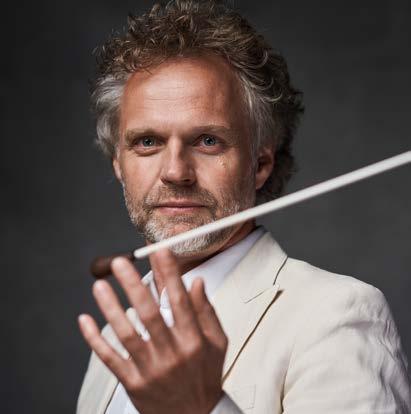
In addition to his regular appearances with the RSNO during the 2023:24 Season, Thomas leads the Orchestra’s residency at Salzburg’s Grosses Festspielhaus this month, joined by pianist Lise de la Salle, as well as an extensive European tour with violinist Ray Chen in January 2024.
He has appeared with many notable orchestras in leading European centres, such as Berlin (Berliner Philharmoniker, RundfunkSinfonieorchester Berlin, Mahler Chamber Orchestra, Konzerthausorchester Berlin), Munich (Symphonieorchester des Bayerischen Rundfunk), Leipzig (Gewandhausorchester),
This season sees Thomas make his return to the London Symphony Orchestra, as well as his debut with the New York Philharmonic, where he will perform the US premiere of Olga Neuwirth’s Keyframes for a Hippogriff. He also makes regular guest appearances throughout Scandinavia, debuting with the Iceland Symphony Orchestra and at the Bergen International Festival, where he leads a full staging of Ibsen’s Peer Gynt to Grieg’s complete incidental music. Return visits include the Bergen Philharmonic Orchestra, a joint collaboration with the Aalborg and Aarhus Symfoniorkesters, and the Danish National Symphony Orchestra, celebrating his receipt of the Carl Nielsen and Anne Marie CarlNielsen Foundation’s award for his outstanding contribution to Danish musical life.
The Royal Scottish National Orchestra is one of Europe’s leading symphony orchestras. Formed in 1891 as the Scottish Orchestra, the company became the Scottish National Orchestra in 1950, and was awarded Royal Patronage in 1977. The Orchestra’s artistic team is led by Danish conductor Thomas Søndergård, who was appointed RSNO Music Director in 2018.
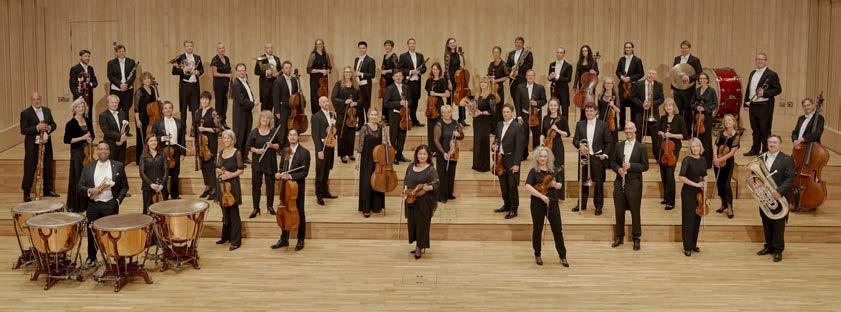
The RSNO is supported by the Scottish Government and is one of the Scottish National Performing Companies. The Orchestra performs across Scotland, including concerts in Glasgow, Edinburgh, Dundee, Aberdeen, Perth and Inverness, and appears regularly at the Edinburgh International Festival and the BBC Proms. The RSNO has made recent tours to the USA, China and Europe.
The RSNO has a worldwide reputation for the quality of its recordings, receiving a 2020 Gramophone Classical Music Award for Chopin’s Piano Concertos (soloist: Benjamin Grosvenor), conducted by Elim Chan, two Diapason d’Or awards (Denève/Roussel 2007; Denève/ Debussy 2012) and eight GRAMMY Award nominations. Over 200 releases are available, including Thomas Søndergård conducting Strauss (Ein Heldenleben, Der Rosenkavalier Suite) and
Prokofiev (Symphonies Nos 1 and 5); two discs of African American Voices featuring the music of George Walker, William Levi Dawson, Margaret Bonds and more, conducted by Kellen Gray; the complete symphonies of Sibelius (Gibson), Prokofiev (Järvi), Bruckner (Tintner) and Roussel (Denève); as well as further discs championing the music of William Grant Still (Eisenberg), Xiaogang Ye (Serebrier) and Thomas Wilson (Macdonald).
The RSNO’s Engagement strategy, Music for Life, sees the Orchestra work with schools and community groups, connecting its music with the people of Scotland. Since March 2020, the RSNO has created multiple online Engagement programmes and Digital Seasons, ensuring the RSNO continues to bring world-class music to its audiences in Scotland and around the world on stage and on screen.
FIRST VIOLIN
Maya Iwabuchi LEADER
Lena Zeliszewska
ASSOCIATE LEADER
Tamás Fejes
ASSISTANT LEADER
Patrick Curlett
Wen Wang
Lorna Rough
Elizabeth Bamping
Ursula Heidecker Allen
Veronica Marziano
Liam Lynch
Caroline Parry
Laura Ghiro
Gillian Risi
Catherine James
SECOND VIOLIN
Lisa Obert
GUEST PRINCIPAL
Jacqueline Speirs
Marion Wilson
Kirstin Drew
Anne Bünemann
Sophie Lang
Harriet Hunter
Nigel Mason
Paul Medd
Robin Wilson
John Robinson
Helena Rose
VIOLA
Tom Dunn
PRINCIPAL
Felix Tanner
Susan Buchan
Katherine Wren
Nicola McWhirter
Beth Woodford
Lisa Rourke
Maria Trittinger
Claire Dunn
Francesca Hunt
CELLO
Pei-Jee Ng
PRINCIPAL
Betsy Taylor
Kennedy Leitch
Niamh Molloy
Rachael Lee
Robert Anderson
Gunda Baranuaskaitė
Iain Ward
Sonia Cromarty
DOUBLE BASS
Kai Kim GUEST PRINCIPAL
Michael Rae
Moray Jones
Alexandre dos Santos
Tom Berry
Ben Burnley
Aaron Barrera-Reyes
Olaya Garcia Alvarez
FLUTE
Katherine Bryan
PRINCIPAL
Oliver Roberts
Janet Richardson
PRINCIPAL PICCOLO
OBOE
Adrian Wilson
PRINCIPAL
Peter Dykes
Henry Clay
PRINCIPAL COR ANGLAIS
CLARINET
Timothy Orpen
PRINCIPAL
William Knight
Duncan Swindells
PRINCIPAL BASS CLARINET
SAXOPHONE
Lewis Banks
BASSOON
David Hubbard
PRINCIPAL
Luis Eisen
Paolo Dutto
PRINCIPAL CONTRABASSOON
HORN
Christopher Gough
GUEST PRINCIPAL
Alison Murray
Andrew McLean
David McClenaghan
Martin Murphy
TRUMPET
Christopher Hart
PRINCIPAL
Katie Smith
Tom Watts
TROMBONE
Dávur Juul Magnussen
PRINCIPAL
Lance Green
Alastair Sinclair
PRINCIPAL BASS TROMBONE
EUPHONIUM
Duncan Wilson
TUBA
John Whitener
PRINCIPAL
TIMPANI
Paul Philbert
PRINCIPAL
PERCUSSION
Simon Lowdon
PRINCIPAL
John Poulter
Colin Hyson
Julian Wolstencroft
Peter Murch
HARP
Pippa Tunnell
Sharron Griffiths
PIANO/CELESTE
Lynda Cochrane
Judith Keaney
THEREMIN
Charlie Draper

I am honoured and extremely proud to be Music Director of the RSNO. It is through the continued generosity of you, our friends, donors and supporters, that we can continue to achieve and realise the most ambitious goals of the Orchestra.
One of the wonders of the RSNO is how it brings high-quality music not only to concert halls, but to the wider community. From hospital settings to care homes, from our Astar app for families with newborns to our National Schools Concert Programme, our music touches so many lives in Scotland and beyond. Your support is the
cornerstone of all that we do, as it allows us to continually build and develop.
Thank you for being part of this wonderful Orchestra’s journey, as we adapt and grow towards a bright future.
Thomas Søndergård MUSIC DIRECTOR, RSNORSNO Benefactors are beacons of philanthropic inspiration, providing truly transformative financial support to the Orchestra that enables us to build and deliver long-term strategic plans. Benefactors share the RSNO’s vision for orchestral music and work with us to drive
the organisation forward, helping us to realise our future plans and ambitions.
Sir Ewan and Lady Brown
Gavin and Kate Gemmell
Kat Heathcote and Iain Macneil
Ms Chris Grace Hartness
The RSNO Conductors’ Circle is an inspirational group of individual supporters at the heart of the RSNO’s Individual Giving programme. Our members’ annual philanthropic gifts enable us to realise the Orchestra’s most ambitious goals. Conductors’ Circle members support inspirational concert performances for our audiences alongside transformational education programmes in communities across Scotland, via our ground-breaking initiative Music for Life.
The RSNO is very grateful for the continued support of its Conductors’ Circle:
Ardgowan Charitable Trust
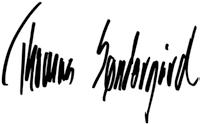
Geoff and Mary Ball
Stina Bruce Jones
Ian and Evelyn Crombie
Kenneth and Julia Greig
Bruce and Caroline Minto
David and Alix Stevenson
Eric and Karen Young
We would also like to thank those generous donors who wish to remain anonymous.
From musical activities in schools with the musicians of the future to working in community venues across Scotland, as a Chair Patron you are enabling RSNO musicians to explore the many facets of their art and the positive impact it has on people’s lives. Supporting an individual musician puts you at the heart of the RSNO family. You’re connected directly to the musicians on stage and get to enjoy privileged behind-the-scenes access. RSNO musicians truly appreciate our Chair Patrons and enjoy developing personal relationships with our supporters.
Assistant Conductor
Derrick Morgan
The Solti Foundation Chair
First Violin
Maya Iwabuchi LEADER
Dunard Fund Chair
Tamás Fejes ASSISTANT LEADER
The Bill and Rosalind Gregson Chair
Ursula Heidecker Allen
The James and Iris Miller Chair
Elizabeth Bamping
The WL and Vera Heywood Chair
Alan Manson
The Hugh and Linda Bruce-Watt
Chair
Lorna Rough
The Hilda Munro Chair
Liam Lynch
Mr Kyle Anderson Weir
Second Violin
Marion Wilson
The Nigel & Margot Russell Chair
Sophie Lang
The Ian & Evelyn Crombie Chair
Emily Nenniger
Mr Jamie & Kyle Anderson Weir
Viola
Tom Dunn PRINCIPAL
The Cathy & Keith MacGillivray Chair
Lisa Rourke SUB PRINCIPAL
The Meta Ramsay Chair
Francesca Hunt
The Rolf and Celia Thornqvist Chair
Cello
Pei-Jee Ng PRINCIPAL
Mr Jamie & Kyle Anderson Weir
Betsy Taylor
ASSOCIATE PRINCIPAL
The Maxwell Armstrong Chair
Kennedy Leitch
ASSISTANT PRINCIPAL
The David and Anne Smith Chair
Rachael Lee
The Christine and Arthur Hamilton Chair
Double Bass
Michael Rae
ASSISTANT PRINCIPAL
James Wood Bequest Fund Chair
With thanks to the Gregor Forbes Chair for their support of the RSNO
Double Bass section
Flute
Katherine Bryan PRINCIPAL
The David & Anne Smith Chair
Oboe
Adrian Wilson PRINCIPAL
The Hedley Wright Chair
Peter Dykes
ASSOCIATE PRINCIPAL
Witherby Publishing Group
Charitable Trust Chair
Clarinet
Timothy Orpen PRINCIPAL
The Shirley Murray Chair
Cor Anglais
Henry Clay PRINCIPAL
In memory of a dear friend, Fiona H
Bassoon
David Hubbard PRINCIPAL
The James and Morag Anderson Chair
Horn
ASSISTANT PRINCIPAL
The Springbank Distillers Chair
Alison Murray
ASSISTANT PRINCIPAL
Mr & Mrs Pierre and Alison Girard
Martin Murphy
ASSISTANT PRINCIPAL
The Gordon Fraser Charitable Trust Chair
David McClenaghan
The J & A Mitchell Chair
Trumpet
Christopher Hart PRINCIPAL
Ms Chris Grace Hartness
Trombone
Dávur Juul Magnussen
PRINCIPAL
The Mitchell’s Glengyle Chair
Lance Green
ASSOCIATE PRINCIPAL
The William Cadenhead Chair
Timpani
Paul Philbert
Ms Chris Grace Hartness
Percussion
John Poulter
ASSOCIATE PRINCIPAL
The Dot and Syd Taft Chair
Library and Orchestra
Assistant
Xander van Vliet
The Hilda Munro Chair
We would like to acknowledge the great support of the RSNO Chair Patron Programme by Mr Hedley G Wright. We are also grateful to those who give but who wish to remain anonymous.
Our range of Learning & Engagement work is huge. From apps for babies to our free National Schools Concert Programme; community orchestras to professional development programmes; digital care packages for care homes and our pioneering Generations projects. The RSNO aims to provide a lifetime of music. Becoming a Patron will bring you closer to the communities we serve across Scotland and provide vital support for this crucial work.
William Brown, W.S
Neil & Nicola Gordon
Professor Gillian Mead, FRSE
Maurice & Nicola Taylor Charitable Trust
The RSNO is dedicated to bringing new works and outstanding new talent to audiences across Scotland. Our New Works Patrons contribute a significant legacy to orchestral music that extends beyond the RSNO, providing new music for orchestras and audiences around the world – for generations to come.
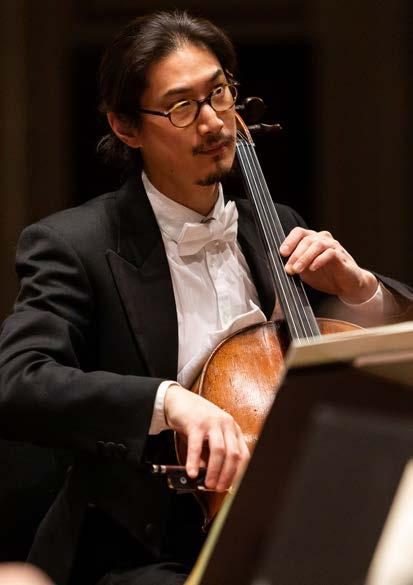
Susie Thomson
We are also grateful to those who give but wish to remain anonymous.
If you would like more information or would like to discuss how you can become part of the RSNO Family of Supporters, please contact Jenny McNeely, Head of Individual Giving and Partnerships, at jenny.mcneely@rsno.org.uk
We would like to thank all those who continue to generously support the RSNO’s Play Your Part Appeal.
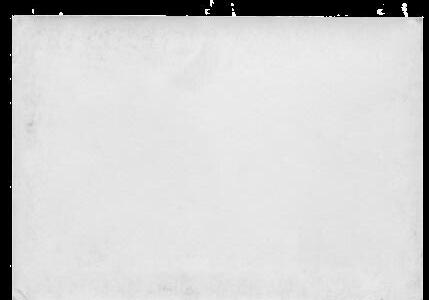
Leave a gift to the RSNO and ensure future generations can create their own Musical Memories of the Royal Scottish National Orchestra.
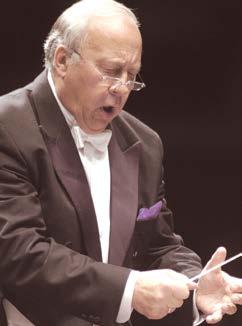
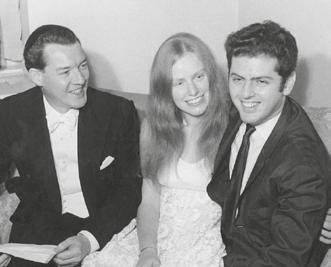
We all have special Musical Memories. It could be learning to play an instrument when you were a child, or a special piece of music that just left you breathless the first time you heard the Orchestra play it. Maybe it was seeing a soloist you had always wanted to hear, or just a great concert shared with friends. Memories such as these make music such an important part of our lives.
Leaving a gift to the RSNO in your will is the single most important way you can help us to make music and to create memories. Your legacy will support the work of the Orchestra for years to come, ensuring that we can continue to bring great music to a new generation of children, young people and adults right across Scotland.
It is easy to leave a gift. After you have made provisions for family and friends, please think of the Orchestra.
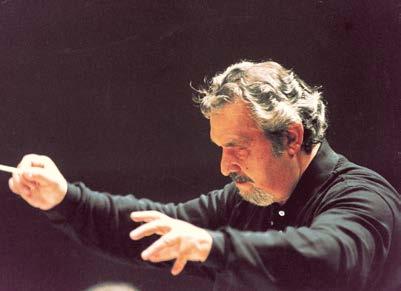
Your gift is important to us and to everyone in Scotland who enjoys music. Contact your solicitor to draft a will or add a codicil to your current will.

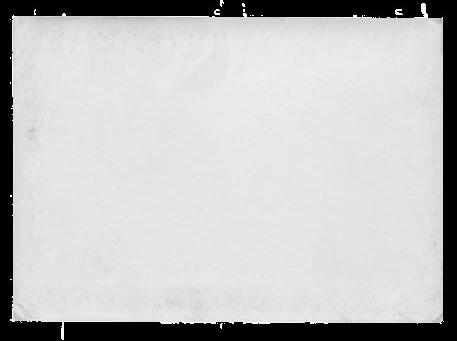
If your estate is subject to inheritance tax, a gift to a charity, such as the RSNO, is tax-free and will reduce the amount of tax payable to the Government. Please ask your solicitor for details.
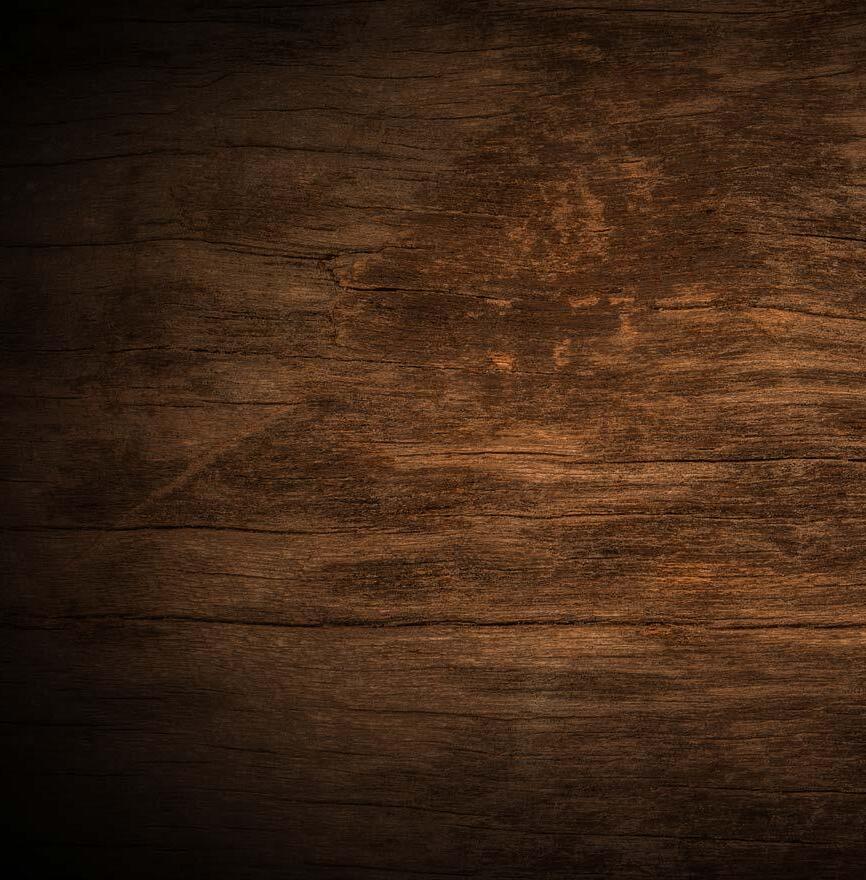
For more information please visit rsno.org.uk/memories
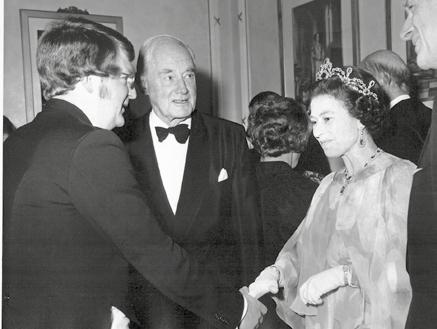
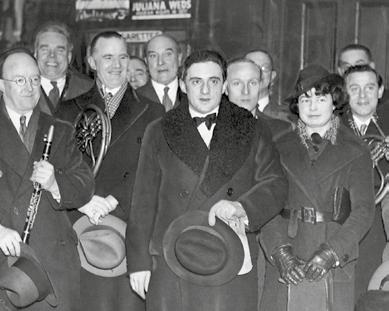
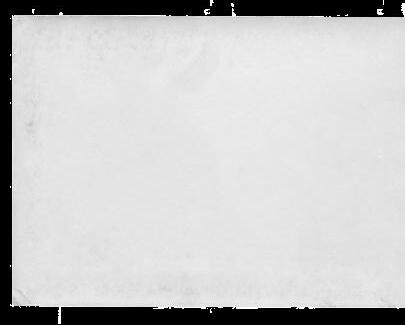

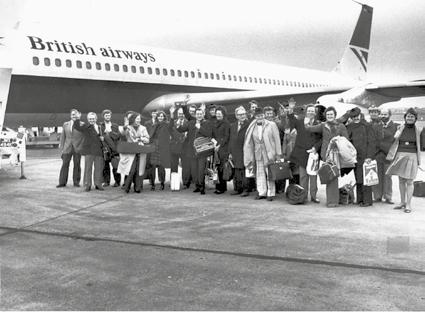
If you would like to discuss this further, please contact Torran McEwan, Individual Giving and Partnerships Officer, in the strictest confidence, at torran.mcewan@rsno.org.uk
To the many among you who have pledged to leave a gift already – thank you.
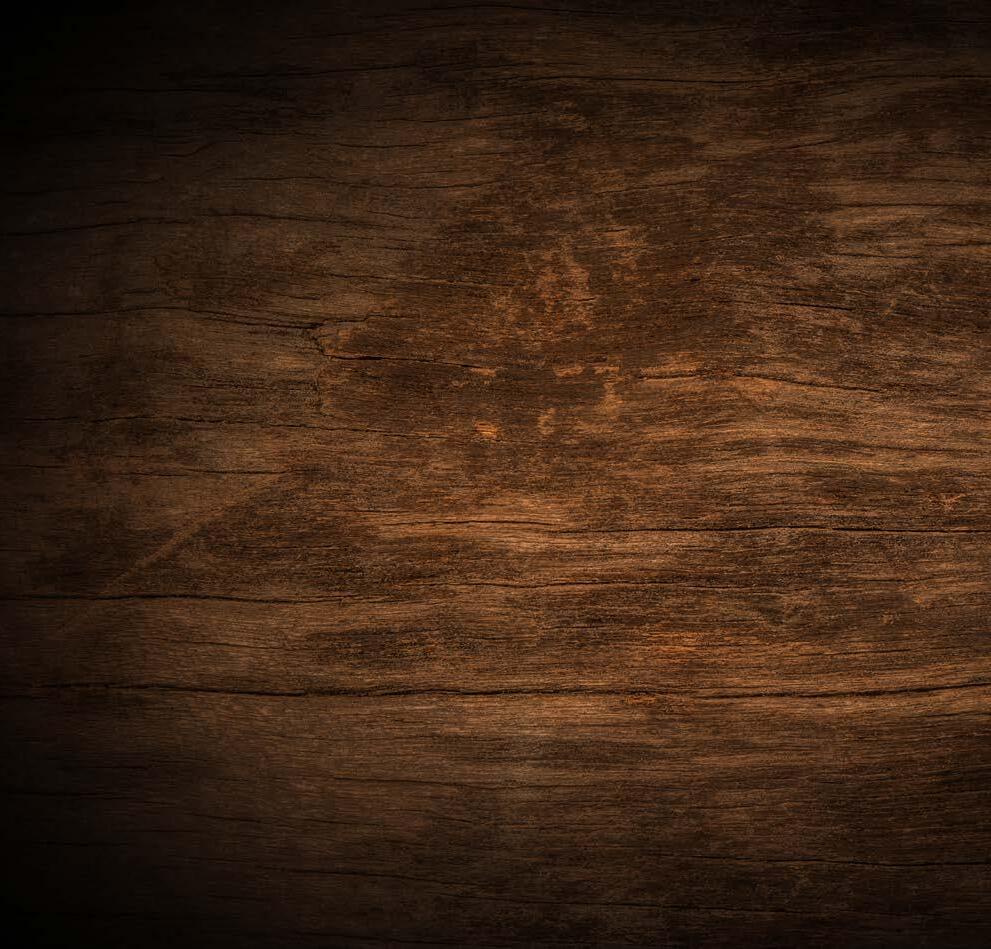
Charitable trusts and foundations have a distinguished history of supporting the RSNO, both on and off stage. From one-off donations for specific projects to multi-year funding for our flagship outreach initiatives, including the National Schools Concert Programme and Young Creatives, every grant in support of our work is truly appreciated. We are grateful to the following trusts and foundations for their generosity:
Aberdeen Endowments Trust
ABO Sirens Fund
Alexander Moncur Trust
Alma & Leslie Wolfson Charitable Trust
Balgay Children’s Society
Bellahouston Bequest Fund

Boris Karloff Charitable Foundation
Brownlie Charitable Trust
Castansa Trust
CMS Charitable Trust
Common Humanity Arts Trust
Cruden Foundation
David and June Gordon Memorial Trust
D’Oyly Carte Charitable Trust
Dr Guthrie’s Association
Dunclay Charitable Trust
Edgar E Lawley Foundation
Educational Institute of Scotland
Ettrick Charitable Trust
Fidelio Charitable Trust
Forteviot Charitable Trust
Gaelic Language Promotion Trust
Gannochy Trust
Gordon Fraser Charitable Trust
Harbinson Charitable Trust
Hope Scott Trust
Hugh Fraser Foundation
James Wood Bequest Fund
Jean & Roger Miller’s Charitable Trust
Jennie S Gordon Memorial Foundation
Jimmie Cairncross Charitable Trust
John Scott Trust Fund
Jones Family Charitable Trust
JTH Charitable Trust
Leach Family Charitable Trust
Leng Charitable Trust
Lethendy Charitable Trust
Mary Janet King Fund (FS Small Grants)
McGlashan Charitable Trust
MEB Charitable Trust
Meikle Foundation
Mickel Fund
Miss E C Hendry Charitable Trust
Music Reprieval Trust
Nancie Massey Charitable Trust
New Park Educational Trust
Noel Coward Foundation
Northwood Charitable Trust
Nugee Foundation
P F Charitable Trust
PRS Foundation
Pump House Trust
Q Charitable Trust
R J Larg Family Trust
Ronald Miller Foundation
Rowena Alison Goffin Charitable Trust
Russell Trust
Scops Arts Trust
Scott Davidson Charitable Trust
Solti Foundation
Souter Charitable Trust
Steel Charitable Trust
Stevenston Charitable Trust
Sylvia Aitken Charitable Trust
Tay Charitable Trust
Thomson Charitable Trust
Tillyloss Trust
Trades House of Glasgow
Vaughan Williams Foundation
Verden Sykes Trust
WA Cargill Fund
Walter Scott Giving Group
Walton Foundation
Wavendon Foundation
William S Phillips Fund
William Syson Foundation
WM Mann Foundation
WM Sword Charitable Trust

Zich Trust
We are also grateful to a number of trusts that wish to stay anonymous.
If you would like more information about our work and how you can make a difference, please contact Naomi Stewart, Head of Trusts and Projects, at naomi.stewart@rsno.org.uk
Our Circle members are a vital part of the RSNO family. You, our community of music-lovers, inspire and support us. To all our existing Circle members, thank you. Your unwavering support allows us to continue bringing the joy of music to all across Scotland.
When you join the RSNO Circle you gain access to exclusive benefits such as priority single ticket booking, our exclusive Inner Circle magazine, the RSNO Circle e-newsletter and invitations to special events such as Open Rehearsals. You also help us to bring music to so many people, from children attending our free schools concerts to people in care homes watching our digital care packages. To find out more about joining the Circle please visit rsno.org.uk/circle or get in touch with Torran McEwan, Individual Giving and Partnerships Officer, at torran.mcewan@rsno.org.uk
Virtuoso
Ms Catherine Y Alexander
Mrs A M Bennett
Mr Alan and Mrs Carolyn Bonnyman
Dame Susan and Mr John Bruce
Stephen and Morny Carter
Francesca and Eoghan Contini
Mackie
Sir Sandy and Lady Crombie
Gavin and Kate Gemmell
Dr M I and Mrs C R Gordon
Scott and Frieda Grier
Judith and David Halkerston
Iain MacNeil and Kat Heathcote
Miss A McGrory
Miss M Michie
Mr James Miller CBE
Nicholas and Alison Muntz
Meta Ramsay
Mr George Ritchie
Mr and Mrs W Semple
Mr Ian Taft
Claire and Mark Urquhart
Raymond and Brenda Williamson
Margaret Duffy and Peter
Williamson
Symphony
William and Elizabeth Berry
Mr John Brownlie
Miss L Buist
Mr A Campbell
Dr K Chapman and Ms S Adam
Mr I Gow
Mr J D Home
Professor J and Mrs S Mavor
Mrs A McQueen
Mr Miller
Mrs A Morrison
Mr and Mrs David Robinson
Concerto
Mr A Alstead
Miss D Blackie
Mr L Borwick
Neil and Karin Bowman
Dr C M Bronte-Stewart
Dr F L Brown
Mr and Mrs Burnside
David Caldwell
Ms H Calvert
Ross Cavanagh
Myk Cichla
Dr J Coleiro
Mr and Mrs B H Cross
Christine and Jo Danbolt
Mr P Davidson
Steven J Davis
Mr J Diamond
Mr S Dunn
Mr C Ffoulkes
Mr W G Geddes
Mr and Mrs M Gilbert
Lord and Lady Hamilton
Mrs S Hawthorn
Dr and Mrs P Heywood
Ms H Kay
Mr and Mrs W Kean
Nicholas Kilpatrick
Christine Lessels
Mr R M Love
Mr D MacPherson
Mrs K Mair
Mr and Mrs Marwick
Mr S Marwick
Mr and Mrs G McAllister
Dr A H McKee
Mr Rod McLoughlin
Morag Miller
Mrs B Morinaud
Dr and Mrs D Mowle
Mr K R and Dr C C Parish
Mr I Percival
Ms A and Miss I Reeve
Mrs E Robertson
Miss L E Robertson
Dr and Mrs G K Simpson
Mr and Mrs A Stewart
Mrs M Stirling
Mr G Stronach
Mr I Szymanski
Mr J B and Mrs M B Watson
Mr and Mrs D Weetman
Mr and Mrs Zuckert
Sonata
Mr K Allen
Dr A D Beattie
Jenny Beattie
Mrs H Benzie
Mr R Billingham
Lord and Lady Borthwick
Rev P Boylan
John Bradshaw and Shiona Mackie
Mrs Bryan
Mrs C Campbell
Miss S M Carlyon
Lady Coulsfield
G Cruickshank
Adam and Lesley Cumming
Dr J K and Mrs E E Davidson
Mr and Mrs K B Dietz
Mrs C Donald
J Donald and L Knifton
Colin Douglas
Mr John Duffy
Mr and Mrs M Dunbar
Mr R M Duncan
Brigadier and Mrs C C Dunphie
Mrs E Egan
Mr R Ellis
Mr R B Erskine
Dr E Evans
Mr D Fraser
Ms J Gardner
Mr D Gibson
Mrs M Gibson
Mr and Mrs A Gilchrist
Mrs M Gillan
Mrs J K Gowans
Dr J and Mrs H Graham
Professor and Mrs A R Grieve
Dr P J Harper
Dr N Harrison
Mr and Mrs R J Hart
Ms V Harvey
P Hayes
Bobby and Rhona Hogg
Ms J Hope
Mr R Horne
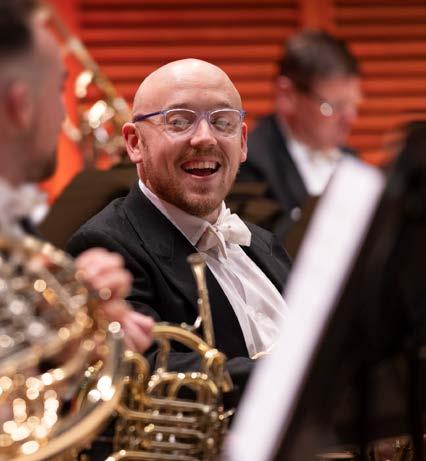
Mr and Mrs F Howell
Mrs A Hunter
Professor R N Ibbett
Mr A Kilpatrick
Professor and Mrs E W Laing
Ms K Lang
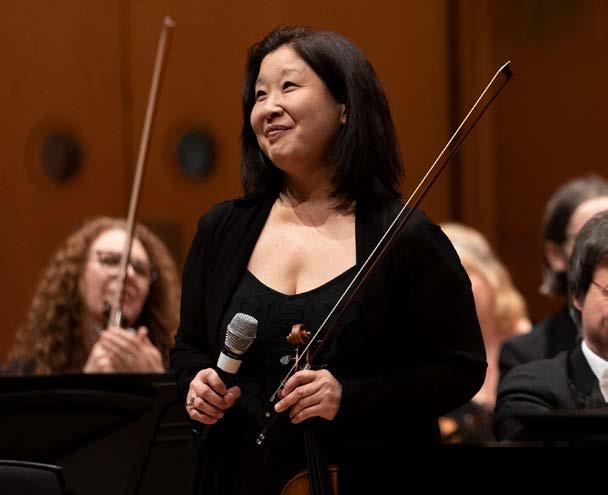
Dr D A Lunt
Dr A K and Mrs J C Martin
Mr and Mrs J Martin
Ms S McArthur
Mr G McCormack
Gavin and Olive McCrone
Mrs M McDonald
Ms M McDougall
Mr M McGarvie
Dr Colin McHardy
Mr G McKeown
Ms H L McLaren
Margaret McLay
Mrs E McLean
Mr D McNaughton
Mr and Mrs B Mellon
Mr I Mills
Mrs P Molyneaux
Mr B Moon
Kenneth M Murray
Alyson Murray
Mr B and Mrs C Nelson
Mr and Mrs K O’Hare
Mr and Mrs K Osborne
Dr G Osbourne
Tanya and David Parker
Mr R Parry
Misses J and M Penman
Mr J W Pottinger
Miss J A Raiker
Mr M Rattray
Ms F Reith
Mrs D A Riley
Dr and Mrs D Robb
Mrs A Robertson
Anne Robertson
Ms A Robson
David Scott
Mrs S Scott
Mrs J Shanks
Mr J A Shipley
Dr M J and Mrs J A Shirreffs
Richard and Gillian Shirreffs
Mr E Simmons and Mrs R Nicolson
Mrs E Smith
Mr M Smith
Dr and Mrs B Stack
Mrs Lorna Statham
Mrs T Stevenson
Mrs R F Stewart
Rev N and Mr R Stewart
Mr and Mrs B Tait
Dr and Mrs T Thomson
Dr Morag Ward
Nelson and Barbara Waters
Mr W Watters
Alan Weddell
Mr G West
Miss M Whitelaw
Philip Whitley and Robert H Mackay
Dr and Mrs D T Williams
Mr D Woolgar
Roderick Wylie
Mr R Young
Thank you to all our members of the Circle, including those who wish to remain anonymous. Every one of you makes a real difference.




CHARITY
CORPORATE
PRINCIPAL

BROADCAST
If you would like more information about sponsorships, corporate partnerships or fundraising events with the RSNO, please contact Jenny McNeely, Head of Individual Giving and Partnerships, at jenny.mcneely@rsno.org.uk


RSNO BOARD OF DIRECTORS
Elected Directors
Dame Susan Bruce DBE
CHAIR
Ken Hay
John Heasley
HONORARY TREASURER
Kat Heathcote
Don Macleod
Neil McLennan
CHIEF EXECUTIVE
Alistair Mackie
Phoebe Connolly
EXECUTIVE ASSISTANT
Nicola Shephard
EXECUTIVE ASSISTANT (MATERNITY LEAVE)
CONCERTS
Dr Ingrid Bols
PLANNING OFFICER
Claire Bryan
STAGE AND PRODUCTION CREW/ SOUND TECHNICIAN
Katie Bryan
STAGE AND PRODUCTION CREW
Ken Fairbrother
STAGE AND PRODUCTION CREW
Ashley Holland
STAGE MANAGER
Emma Hunter
DEPUTY ORCHESTRA MANAGER
Ewen McKay
HEAD OF ORCHESTRA MANAGEMENT
Jim O’Brien
DRIVER AND ORCHESTRA TECHNICIAN
Richard Payne
LIBRARIAN
Tammo Schuelke
HEAD OF PLANNING
Craig Swindells
HEAD OF PRODUCTION
Matthias Van Der Swaagh
CONCERTS ADMINISTRATOR
Xander van Vliet
LIBRARY ASSISTANT
Christine Walker
CHORUS MANAGER
Costa Pilavachi
David Robinson
John Stewart
David Strachan
Player Directors
Katherine Bryan
Christopher Hart
David Hubbard
Dávur Juul Magnussen
Sophie Lang
Lorna Rough
LEARNING AND ENGAGEMENT
Andrew Stevenson
DIRECTOR OF ENGAGEMENT
Samantha Campbell
CREATIVE PRODUCER FOR COMMUNITIES
Rosie Kenneally
CREATIVE PRODUCER FOR LEARNING
Rachel Pyke
ENGAGEMENT COORDINATOR
EXTERNAL RELATIONS
Dr Jane Donald
DIRECTOR OF EXTERNAL RELATIONS
Lisa Ballantyne
PARTNERSHIPS OFFICER
Ian Brooke
PROGRAMMES EDITOR
Rosie Clark
COMMUNICATIONS AND MARKETING OFFICER
Jessica Cowley
MARKETING MANAGER
Carol Fleming
HEAD OF MARKETING
Polly Lightbody
EXTERNAL RELATIONS ADMINISTRATOR
Torran McEwan
INDIVIDUAL GIVING AND PARTNERSHIPS
OFFICER
Jenny McNeely
HEAD OF INDIVIDUAL GIVING AND PARTNERSHIPS
Graham Ramage
GRAPHICS AND NEW MEDIA DESIGNER
Kirsten Reid
TRUSTS AND PROJECTS COORDINATOR
Dr Naomi Stewart
HEAD OF TRUSTS AND PROJECTS
/royalscottishnationalorchestra
Nominated Directors
Cllr Edward Thornley
THE CITY OF EDINBURGH COUNCIL
Company Secretary
Julia Miller
RSNO COUNCIL
Baroness Ramsay of Cartvale
CHAIR
Ms Ruth Wishart
Sam Stone
INFORMATION SERVICES MANAGER
Ross Williamson
CONTENT CREATOR
FINANCE AND CORPORATE SERVICES
Angela Moreland
CHIEF OPERATING OFFICER
Abby Dennison
FINANCE ADMINISTRATOR
Alice Gibson
FINANCE ADMINISTRATOR
Ted Howie
FACILITIES COORDINATOR
Lorimer Macandrew
VIDEO PRODUCER
Sam McErlean
ASSISTANT SOUND ENGINEER
Irene McPhail
ACCOUNTS AND PAYROLL ASSISTANT
Calum Mitchell
ASSISTANT VIDEO PRODUCER
Hedd Morfett-Jones
DIGITAL MANAGER
Susan Rennie
FINANCE MANAGER
Jade Wilson
FINANCE ASSISTANT
Royal Scottish National Orchestra
19 Killermont Street
Glasgow G2 3NX
T: +44 (0)141 226 3868
W: rsno.org.uk
Scottish Company No. 27809
Scottish Charity No. SC010702

